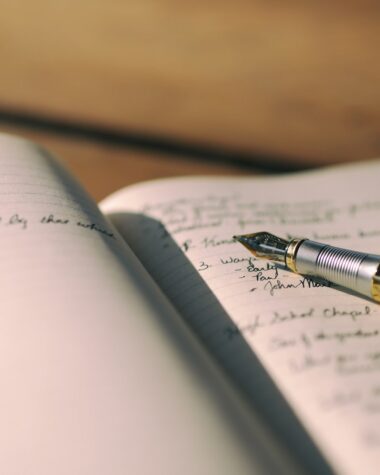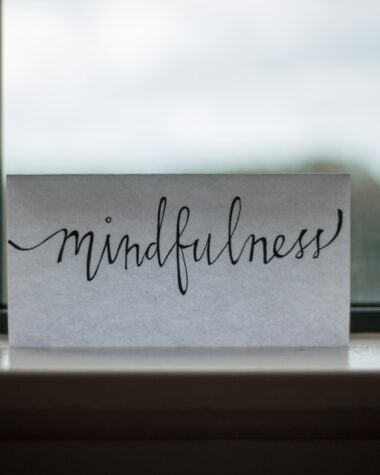In our fast-paced, distraction-filled world, achieving mental clarity can feel like an impossible task. Emails, notifications, and endless responsibilities fragment attention and drain focus. However, in 2025, research in neuroscience and psychology confirms that small, deliberate actions—micro-habits—can significantly enhance mental clarity, even in just a week. Unlike radical lifestyle overhauls, micro-habits are tiny, sustainable practices that accumulate into meaningful improvements in cognition, focus, and emotional balance.
Mental clarity is not simply about concentration; it encompasses the ability to think clearly, process information efficiently, make decisions confidently, and maintain emotional equilibrium. Micro-habits work because they tap into the brain’s natural reward systems, creating consistency and reinforcing positive neural pathways. Over seven days, these small habits can sharpen attention, reduce cognitive fatigue, and leave the mind feeling lighter and more capable.
1. Morning Mindfulness for a Focused Start
The Power of Five Minutes
Starting the day with just five minutes of mindfulness or meditation can dramatically improve mental clarity. Focusing on the breath, bodily sensations, or a short visualization primes the brain for attention and emotional regulation throughout the day.
Reducing Mental Clutter
Morning mindfulness reduces intrusive thoughts and mental noise. By creating a calm starting point, you establish a framework for deliberate thinking and clarity in decision-making, allowing the mind to prioritize important tasks over distractions.
2. Hydration and Brain Function
Water as a Cognitive Booster
Even mild dehydration can impair attention, memory, and processing speed. Drinking a glass of water first thing in the morning and maintaining regular hydration throughout the day supports neural efficiency and mental sharpness.
Building a Simple Habit
Pair water intake with another morning routine, such as brushing teeth, to make it automatic. Over seven days, consistent hydration improves energy, focus, and overall cognitive performance.
3. Micro-Movements for Mental Energy
Stretching and Blood Flow
Short bursts of movement—stretching, a few squats, or a brief walk—enhance circulation and oxygen delivery to the brain. Increased blood flow improves alertness, mood, and cognitive flexibility.
Breaking Sedentary Patterns
Sitting for extended periods fragments attention and reduces mental energy. Integrating micro-movements every hour combats fatigue, promotes mental agility, and strengthens the connection between body and mind.
4. Digital Minimalism
Reducing Cognitive Overload
Smartphones and screens bombard the brain with information, often causing decision fatigue. Setting boundaries, such as turning off notifications or designating specific times to check emails, preserves mental resources.
Creating Mental Space
Even brief periods of digital fasting—like 15–30 minutes in the morning—allow the brain to reset. Over a week, these small adjustments reduce mental clutter and improve focus on meaningful tasks.
5. Journaling for Thought Organization
Five-Minute Brain Dumps
Writing down thoughts, ideas, and worries for a few minutes each morning or evening clears mental space. This micro-habit organizes priorities and prevents ruminative thinking from overwhelming the mind.
Tracking Progress
By reviewing entries over seven days, patterns and insights emerge, supporting self-awareness and more intentional decision-making. Journaling is a simple yet powerful tool to sharpen cognitive clarity and emotional regulation.
6. Intentional Pauses Throughout the Day
Micro-Breaks for Mental Reset
Taking two-minute pauses every hour allows the brain to consolidate information and restore focus. Techniques like deep breathing, stepping outside briefly, or gentle stretching refresh the mind.
Preventing Cognitive Fatigue
Interrupting prolonged concentration with brief pauses prevents burnout and maintains consistent performance, supporting clarity and productivity without requiring large blocks of time.
7. Nutrition for Cognitive Support
Brain-Friendly Snacks
Incorporating small portions of nutrient-dense foods—nuts, berries, and leafy greens—provides essential vitamins, antioxidants, and healthy fats that support neurotransmitter function.
Regular Eating Patterns
Micro-habits like consuming balanced meals and staying consistent with meal timing stabilize energy levels and prevent the mental fog caused by spikes and crashes in blood sugar.
8. Mindful Breathing Techniques
Box Breathing and Focus
Box breathing—inhale, hold, exhale, hold for equal counts—activates the parasympathetic nervous system, reducing stress and enhancing focus. Practicing this for two to three minutes, several times a day, strengthens attention and cognitive clarity.
Integrating Into Daily Life
Pair breathing exercises with routine activities, like waiting for a meeting to start or commuting, to make this micro-habit seamless. Small, repeated moments of mindful breathing enhance clarity within a week.
9. What NOT to Do When Seeking Mental Clarity
Overloading With Techniques
Attempting too many new habits at once overwhelms the brain. Start small, focus on a few micro-habits, and gradually integrate more over time to see sustained improvements.
Neglecting Sleep and Rest
Even the most disciplined micro-habits cannot compensate for poor sleep. Ensure adequate rest to allow the brain to consolidate memory, regulate emotions, and maintain focus.
10. Measuring Progress Over Seven Days
Tracking Mental Performance
Simple measures like journaling cognitive observations, rating focus levels, or noting task completion provide feedback on improvements. Over seven days, these records highlight the cumulative impact of micro-habits.
Observing Emotional Clarity
Beyond cognitive performance, track emotional steadiness and stress levels. Micro-habits that support mental clarity often improve mood, patience, and resilience, enhancing overall well-being.
Conclusion
In just seven days, small, intentional micro-habits can create measurable improvements in mental clarity. Morning mindfulness, hydration, micro-movements, digital boundaries, journaling, breathing exercises, and mindful nutrition work together to reduce cognitive clutter, increase focus, and enhance emotional balance.
The power of micro-habits lies in their simplicity and sustainability. By starting small and maintaining consistency, anyone can cultivate a clearer, sharper, and more resilient mind. In 2025, mental clarity is not a distant goal—it is achievable through deliberate, daily actions that strengthen focus, cognition, and overall well-being.








